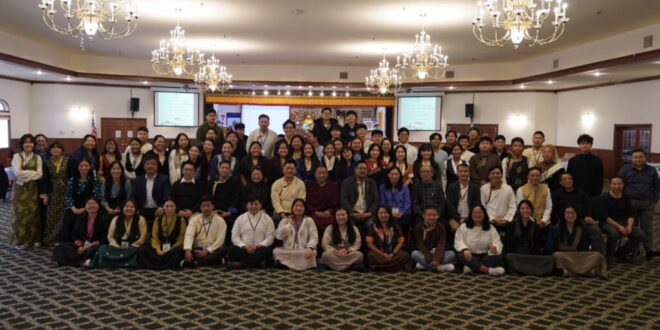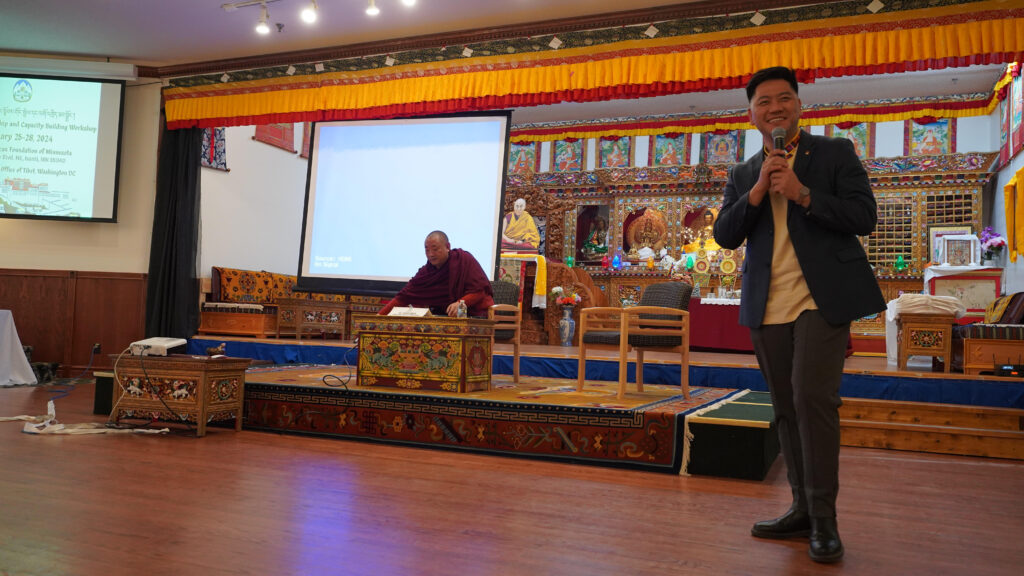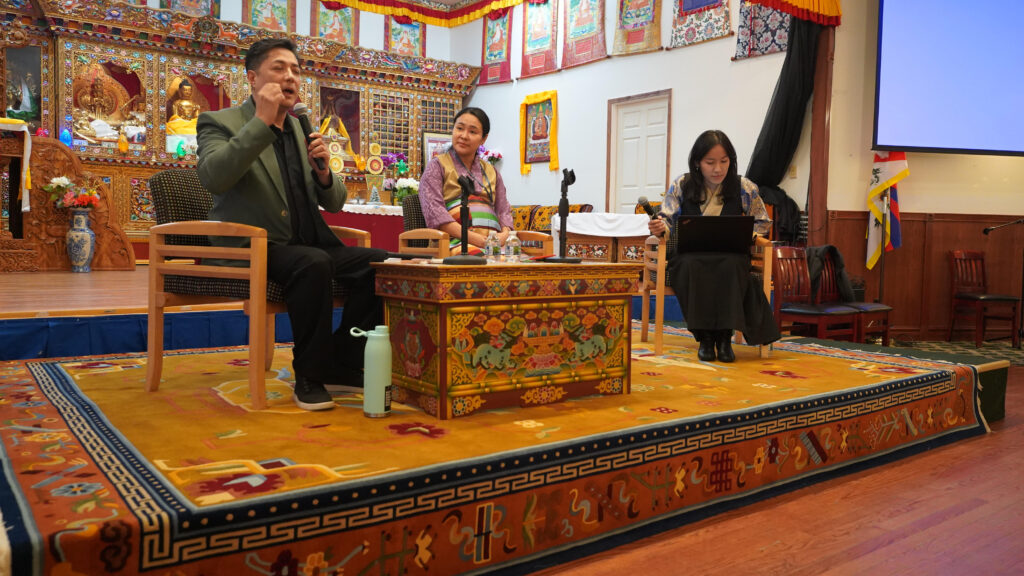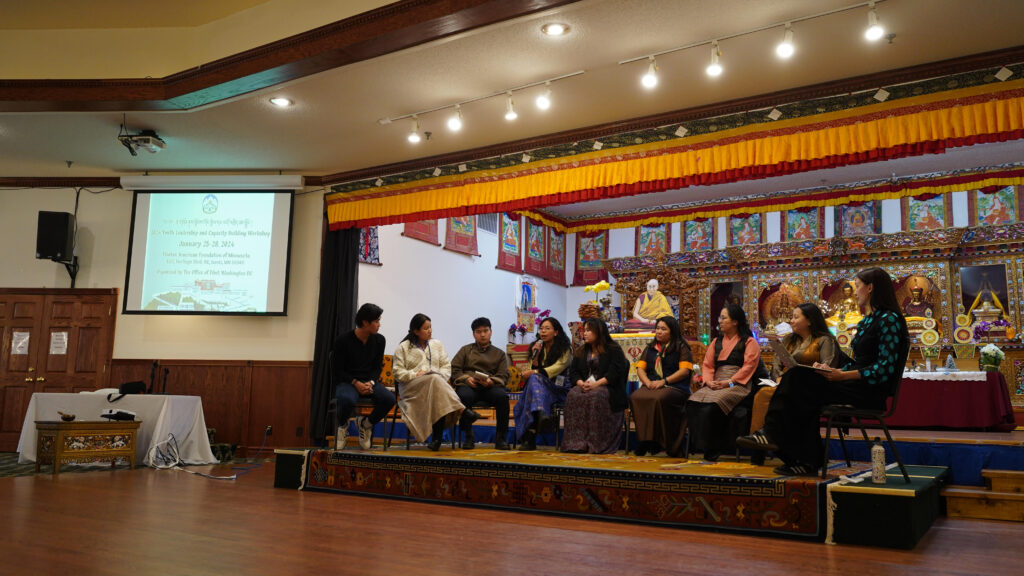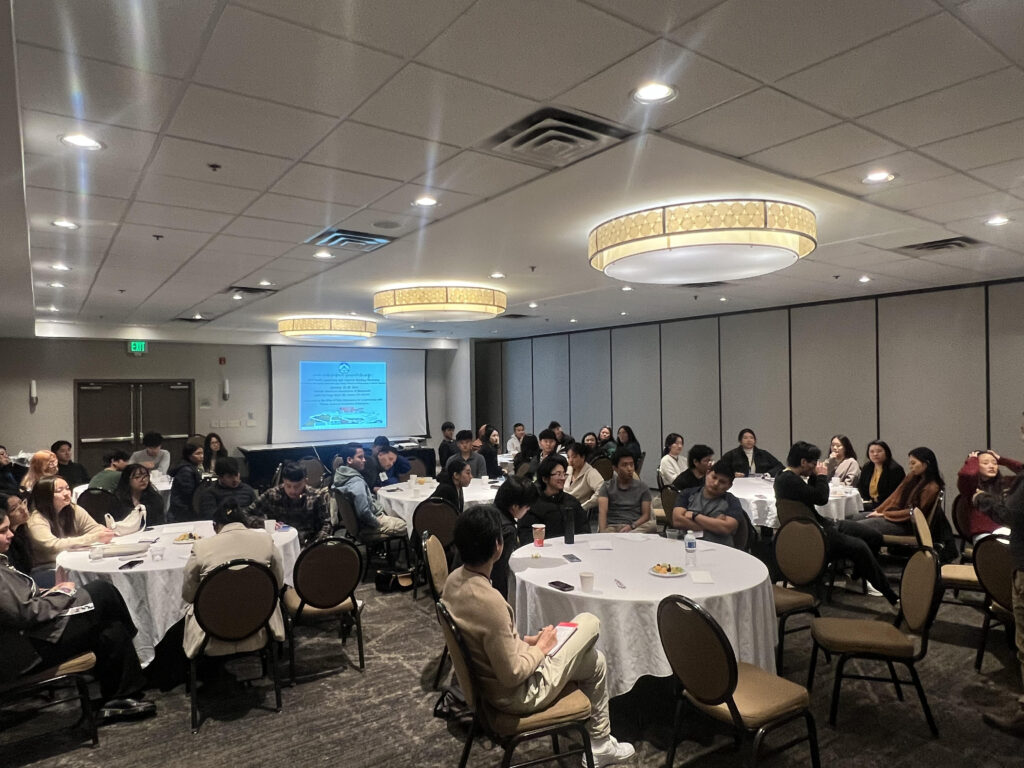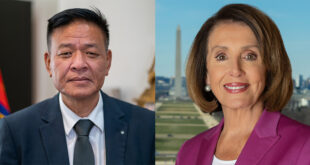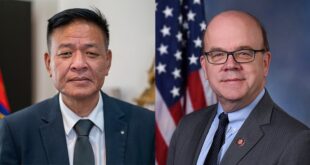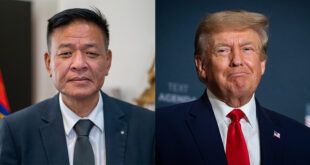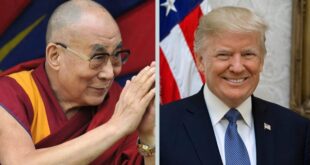Washington DC: A youth leadership and capacity building workshop was successfully conducted from 25 to 28 January in Minnesota, which has the second largest Tibetan population in the US. The Office of Tibet in collaboration with the Tibetan American Foundation of Minnesota (TAFM) organised the three-day workshop that brought over sixty Tibetan college students and young professionals from twenty states in the US and Canada, representing over 40 universities.
The workshop was structured to include a mix of interactive sessions and expert-led presentations over three days. To facilitate more interactive exchanges, the guest speakers participated in group sessions focussed on different themes.
Representative Namgyal Choedup presented an overview of CTA’s vision paper and highlighted how a well-rounded education envisioned by His Holiness the Dalai Lama and CTA (modern secular education integrated with the inner education of heart and mind) can empower the Tibetan youths to become force for positive change and global leaders in whatever professional fields they follow. One of the workshop’s main facilitators, Dr Tenzin Sonam from Emory University, began the daily workshop with short meditation sessions followed by interactive sessions on secular ethics and developing inner values.
Bhuchung Tsering, a key member of the Sino-Tibet dialogue team, who currently heads the research and monitoring unit at International Campaign for Tibet, gave a simple yet powerful presentation on how the Tibetan youths should embrace their Tibet-American identity to the fullest extent and in the process contribute to the understanding of the plight of the Tibetan people inside Tibet. Dr. Dawa Lokyitsang and Dr. Tsewang Rigzin shared their personal career journeys and accomplishments and how each of the Tibetan youths can contribute to the larger Tibetan cause in a panel Crafting Our Dream: Empowering New Generations in Building the Tibet of Tomorrow. In another panel Leadership and Public Service, moderated Tsejin Khando, an upcoming Tibetan youth leader and newest addition to ICT’s team, Dr. Tenzin Jangchup and Jigme Ugen shared their experience of leadership and community service.
The Chinese Liaison Officer of the Office of Tibet, Tsultrim Gyatso, gave a presentation on the importance of Sino-Tibetan Dialogue at the people-people level and shared the potential role of the participants in expanding and collaboration in the outreach to the Chinese students and scholars in the American universities.
A separate panel session moderated by a Tibetan youth and community leader of TAFM, Tenzin Kunkyi, gave a platform to share the various youth initiatives in mentoring, career guidance and counselling, and local advocacy. Members of the four youth initiatives, Rokpa, Sontsa, Youth for Umaylam, and V-TAG shared their experiences and challenges and gained invaluable feedback and encouragement.
One of the two special guest speakers at this workshop was Judge Tsering Cornell, the first Tibetan American judge in the United States and the first Asian American judge in Clark county, Washington State. Judge Cornell shared her life and career journey as a Tibetan American and how her own Tibetan upbringing and values helped her to preserve and become who she is today. She beseeched the Tibetan youths to join her so that she doesn’t have to feel lonely in the category of ‘only Tibetan-American judge’ and stated that Buddhist values are very compatible with and had a lot to contribute to the legal profession.
The other special guest speaker, Geshe Lobsang Monlam who recently received a PhD degree from the Dalai Lama Institute of Higher Education, gave a presentation titled Tibetan language and Artificial Intelligence. The presentation highlighted how the Tibetan language is highly sophisticated and rich enough to process and disseminate not just spiritual and religious knowledge but highly technical and scientific modern knowledge. He demonstrated the richness of Tibetan language through his several trailblazing projects like developing Tibetan fonts, dictionaries and softwares. His presentation also highlighted how these projects are contributing in the preservation and promotion of Tibetan language, culture and even the potential of developing ethics in the field of Artificial Intelligence.
The final day of the workshop ended with a feedback and reflection session. Everyone appreciated the novel idea of collaborating with the Tibetan community to host the workshop. The Office of Tibet extended a special shout-out to the TAFM and all the community volunteers who help make this workshop a great success and a very pleasant experience. Based on the general responses and feedback, the organisers of the workshop felt inspired to continue investing in the youth leadership and capacity building workshops in the coming future taking into account the valuable constructive feedback received thus far.
-Report filed by OoT Washington DC
